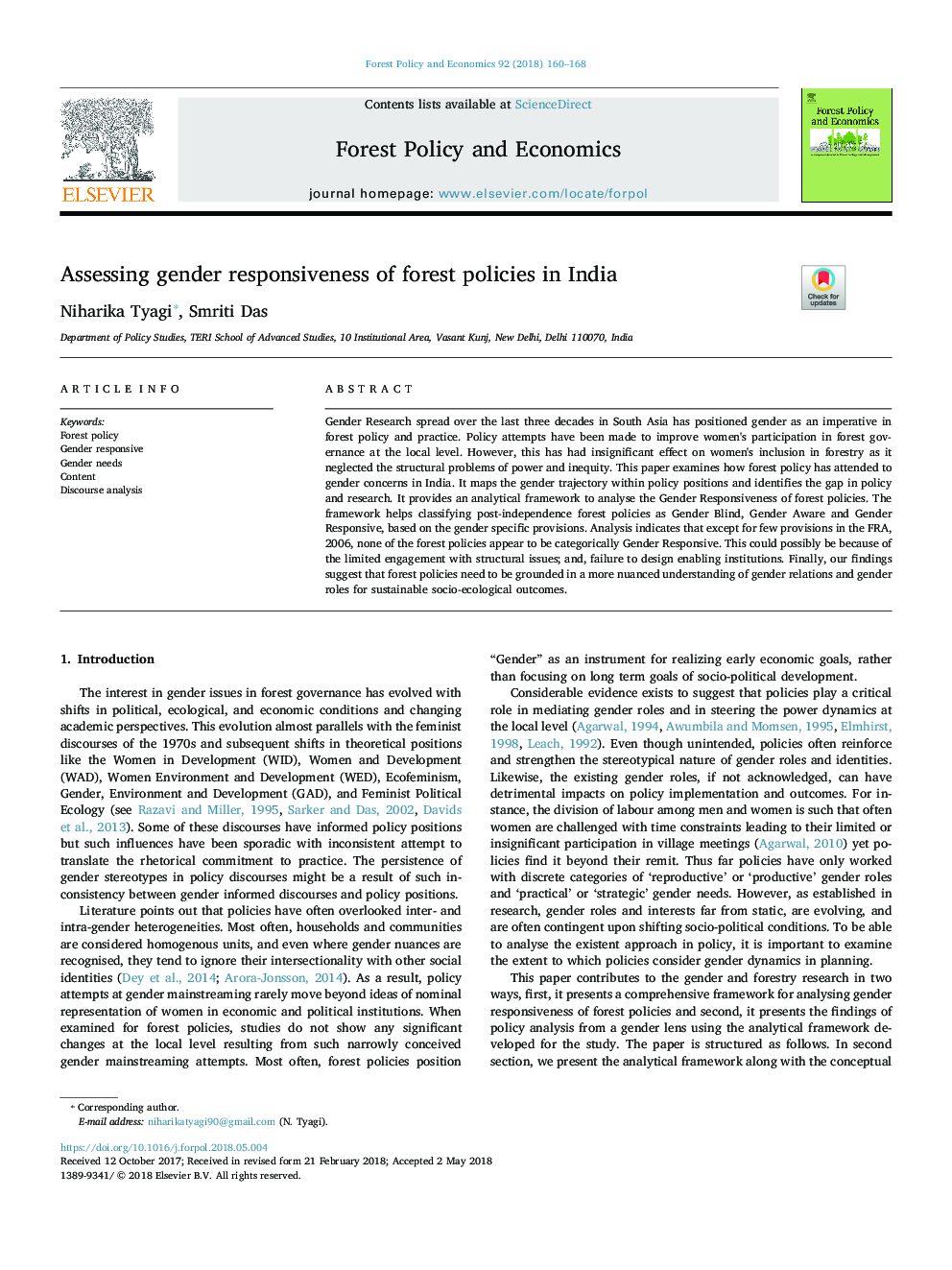| Article ID | Journal | Published Year | Pages | File Type |
|---|---|---|---|---|
| 6544745 | Forest Policy and Economics | 2018 | 9 Pages |
Abstract
Gender Research spread over the last three decades in South Asia has positioned gender as an imperative in forest policy and practice. Policy attempts have been made to improve women's participation in forest governance at the local level. However, this has had insignificant effect on women's inclusion in forestry as it neglected the structural problems of power and inequity. This paper examines how forest policy has attended to gender concerns in India. It maps the gender trajectory within policy positions and identifies the gap in policy and research. It provides an analytical framework to analyse the Gender Responsiveness of forest policies. The framework helps classifying post-independence forest policies as Gender Blind, Gender Aware and Gender Responsive, based on the gender specific provisions. Analysis indicates that except for few provisions in the FRA, 2006, none of the forest policies appear to be categorically Gender Responsive. This could possibly be because of the limited engagement with structural issues; and, failure to design enabling institutions. Finally, our findings suggest that forest policies need to be grounded in a more nuanced understanding of gender relations and gender roles for sustainable socio-ecological outcomes.
Related Topics
Life Sciences
Agricultural and Biological Sciences
Forestry
Authors
Niharika Tyagi, Smriti Das,
